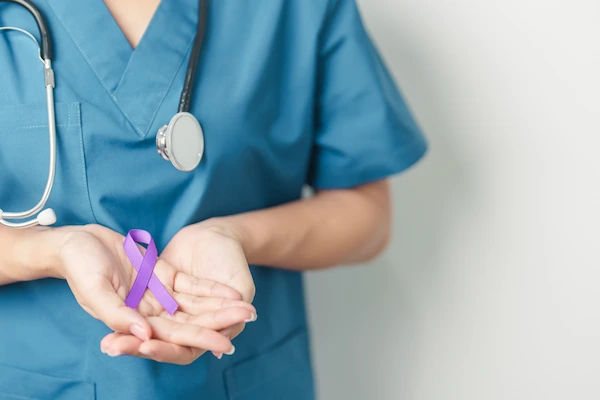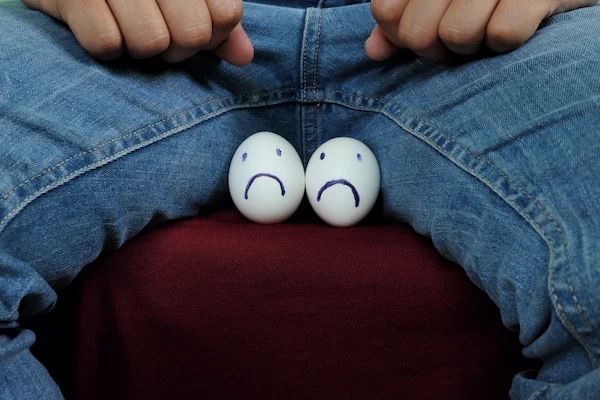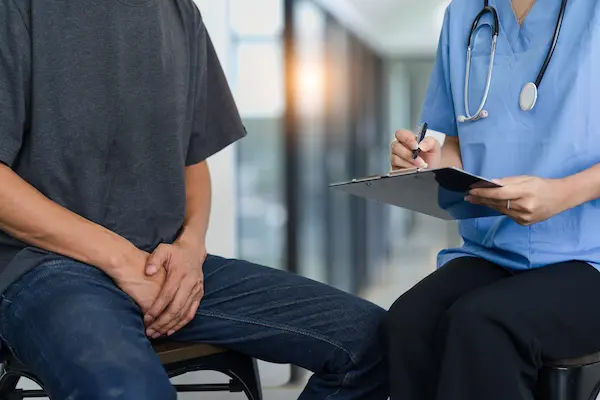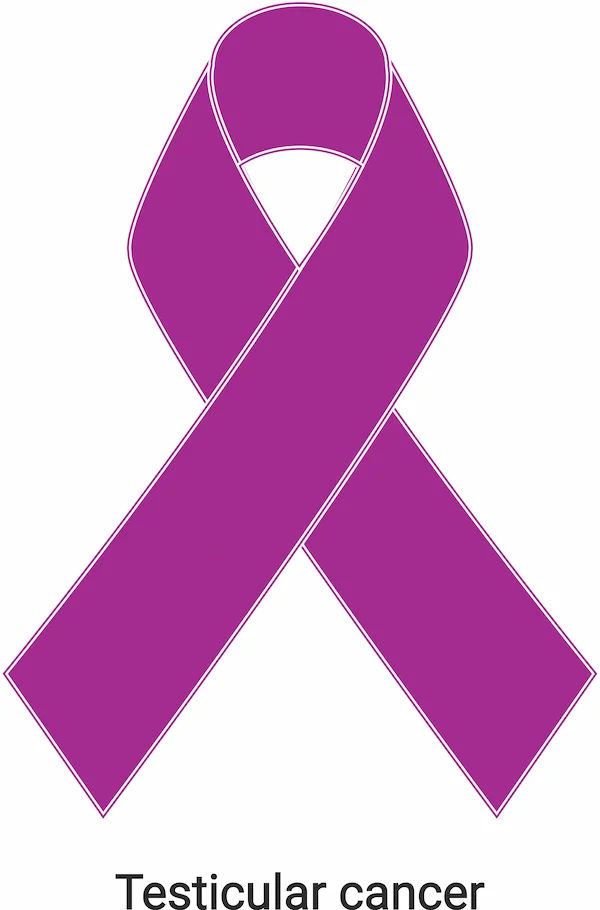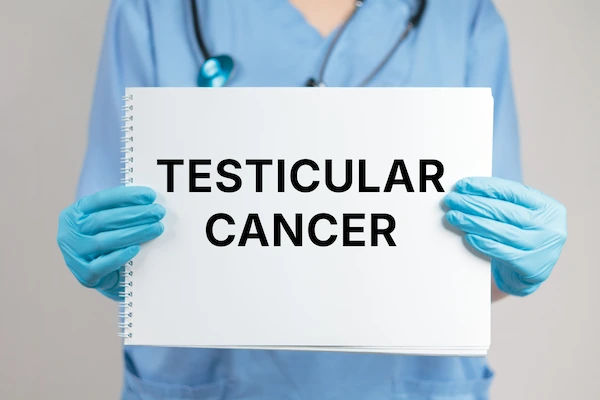Testicular Cancer: A Comprehensive Guide to its Types, Symptoms, Diagnosis and Treatment
Learn about testicular cancer including its types, symptoms, diagnosis, treatment options, stages, and coping & support methods.

Written by
Last updated on 13th Jan, 2026
Testicular cancer is a type of cancer that develops in the testicles—the male reproductive glands located in the scrotum. These glands are responsible for producing sperm and the hormone testosterone.
It can occur at any age but is most common between the ages of 15 and 45. A bulge or lump on a testicle is commonly the first symptom of testicular cancer. Treatment options vary depending on the kind of testicular cancer and the extent to which it has spread.
This article provides an overview of testicular cancer, its types, side effects, diagnosis, and treatment.
Symptoms and Signs of Testicular Cancer
The most common sign of testicular cancer is a painless lump in the testicle. Other symptoms include:
Swelling or abrupt fluid buildup in the scrotum.
A bulge or enlargement on either testicle.
A feeling of heaviness in the scrotum.
Dull pain in the groin or lower abdomen.
Pain or discomfort in the scrotum or testicles.
A diminishing testicle (testicular atrophy).
Delays in detection can cause cancer cells to spread more, which makes the disease difficult to cure.
The Risk Factors of Testicular Cancer
Factors that may increase the risk of testicular cancer include are as follows:
Testicular cancer can develop at any age. But it is most frequent in teenagers and young adults aged 15 to 45.
Cryptorchidism is a disorder where one or both testicles do not descend into the scrotum before birth, originating in a baby's belly. If the testicle remains in the belly or groin, the risk of testicular cancer increases later in life, even with surgery to relocate it.
If testicular cancer exists in the person's family history, then the chances of developing it may be higher. Certain inherited genetic conditions, such as Klinefelter Syndrome, can also elevate the risk of developing testicular cancer.
The Types of Testicular Cancer
Approximately 90% of all testicular cancers are caused by germ cells in the testicles clumping together to create a mass or tumour. Germ cells are responsible for two forms of testicular cancers, which are as follows:
Seminoma: Slow-growing cancer that primarily affects people in their 40s or 50s.
Non-seminoma: Cancer that develops faster than seminomas. It primarily affects persons in their late teens to early thirties. It is further divided into four subtypes based on the type of germ cells forming the tumour—embryonic cancer, yolk sac carcinoma, choriocarcinoma, and teratoma.
What are the Stages of Testicular Cancer?
Cancer staging is also part of the diagnosis process. Staging gives critical information for treatment decisions, such as tumour size and if the disease has spread.
Stage 0: Abnormal cells have formed but remain inside the testicles, where sperm cells begin to grow.
Stage I: Cancer is limited to the testicle and may affect surrounding blood or lymph arteries.
Stage II: Cancer has spread to the lymph nodes in the rear of the abdomen, but not elsewhere.
Stage III: Cancer has spread to lymph nodes and beyond the abdomen or to an organ.
Diagnosis of Testicular Cancer
The doctor may diagnose testicular cancer after examining a lump or other alteration in the testicle discovered via a self-exam. A basic physical checkup can sometimes reveal the presence of testicular cancer.
Common procedures and tests to help diagnose testicular cancer are as follows:
A physical exam: The doctor will ask about the patient's symptoms and perform a thorough examination to look for indicators of testicular cancer. They will feel for lumps in the testicles and examine the lymph nodes to identify potential cancer spread.
Ultrasound: If the doctor sees an issue during the checkup, they will most likely request an ultrasound. An ultrasound is a painless medical treatment that employs high-energy sound waves to produce images of tissue within the body.
Inguinal orchiectomy and biopsy: If the ultrasound detects cancer, the doctor will remove the afflicted testicle via an incision (cut) in the groin. A specialist will analyse tissue from the testicle under a microscope to look for cancer cells.
A serum tumour marker test: This process examines a blood sample to determine the concentrations of particular chemicals associated with specific forms of cancer. These chemicals are referred to as tumour markers. Alpha-fetoprotein (AFP), human chorionic gonadotropin (HCG or beta-HCG), and lactate dehydrogenase (LDH) are three tumour markers that are frequently increased in testicular cancer. Therefore, Elevated LDH levels may suggest that cancer has spread.
Get Tested for Testicular Cancer
What are the Treatment Options for Testicular Cancer?
Treatment is determined by various factors, including overall health, treatment choices, cancer stage, and tumour type which are as follows:
1. Surgery
Surgery to remove the cancerous testicle is the most common treatment for testicular cancer, regardless of cancer stage or tumour type. In some cases, the provider may also remove the lymph nodes.
Radical Inguinal Orchiectomy: To treat seminoma and non-seminoma testicular malignancies, the doctor may perform an orchiectomy (the removal of the testicle). During the operation, the doctor will create a cut in the groin to remove the testicle containing the tumour. They will also block blood arteries and lymphatic tissue to keep cancer from spreading from the tumour site to the rest of the body.
Retroperitoneal Lymph Node Dissection: Depending on the stage and kind of cancer, the doctor may conduct retroperitoneal lymph node dissection. It is more prevalent in non-seminoma testicular tumours. During the operation, the physician will create an incision in the belly and remove the lymph nodes located behind the abdominal organs.
2. Radiation Therapy
Radiation treatment uses high-dose X-rays to destroy cancer cells. Radiation may be administered following surgery to prevent the tumour from recurring. Radiation is usually only used to treat seminomas.
3. Chemotherapy
Chemotherapy has increased the survival rate of people with both seminomas and non-seminomas. Depending on the cancer, a person may be given chemotherapy instead of surgery. It can be used either before or after a radical inguinal orchiectomy. Chemotherapy uses drugs such as cisplatin, bleomycin, and etoposide to kill cancer cells.
Coping and Support Methods for Testicular Cancer
Each person copes with a testicular cancer diagnosis in their own manner. Here are some points by which a patient can feel a little better and have the emotional strength to fight testicular cancer.
Learn enough about testicular cancer to feel comfortable and make informed decisions about the care.
Make healthy choices in everyday life to prepare for cancer treatment. Eat a healthy diet with a variety of fruits and vegetables.
Connect with other cancer survivors and find other testicular cancer survivors in the nearby area or online.
Stay connected with family and friends. They just want to support and help, so try not to turn down their offers for help.
Prevention and Screening of Testicular Cancer
Some doctors recommend regular testicular self-examinations, where a person feels the testicles for lumps or any changes.
However, If a person observes any changes that last longer than two weeks, then they should immediately book an appointment with the doctor. Also, one must take the necessary precautions to avoid any sexually transmission infections (STIs). Individuals can also make lifestyle changes, such as avoiding tobacco products and limiting alcohol.
Conclusion
Testicular cancer primarily affects young men aged between 15 and 45. Early identification is crucial for better outcomes. Surgery, radiation, and chemotherapy have improved survival rates, even in advanced patients.
Emotional support from family, friends, and cancer survivors is a good way to handle this situation. Therefore, taking a preventive approach and seeking immediate medical attention can effectively manage testicular cancer and improve overall well-being.
Consult Top Oncologists
Consult Top Oncologists

Dr. Amit Choraria
Surgical Oncologist
18 Years • MBBS, MS (Surgery) Fellow, Surgical Oncology, Tata Medical Center (FSO) Fellow, European Board of Surgery (Surgical Oncology) (FEBS) Fellow, Minimal Access Surgery (FMAS) Fellow, Indian Association of Gastrointestinal Endosurgeons (FIAGES) UICC Fellow, Royal Marsden NHS, London, UK Visiting Scholar, Plastic Reconstructive Surgery, CGMH, Taiwan Fellow, Robotic Surgical Oncology, Vattikuti Foundation, USA
Kolkata
Apollo Multispeciality Hospitals , Kolkata, Kolkata

Dr Gowshikk Rajkumar
Oncologist
10 Years • MBBS, DMRT, DNB in Radiation oncology
Bengaluru
Apollo Clinic, JP nagar, Bengaluru

Dr. Sanchayan Mandal
Medical Oncologist
17 Years • MBBS, DrNB( MEDICAL ONCOLOGY), DNB (RADIOTHERAPY),ECMO. PDCR. ASCO
Kolkata
MCR SUPER SPECIALITY POLY CLINIC & PATHOLOGY, Kolkata
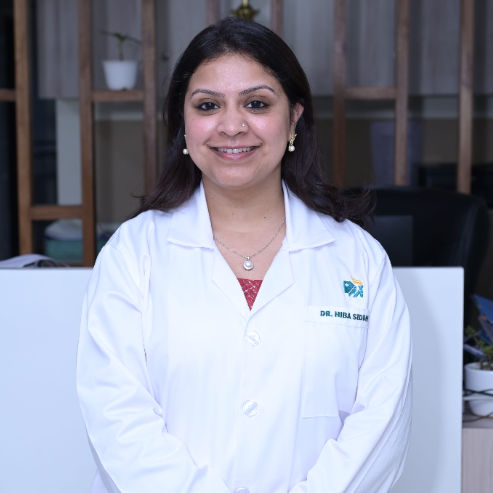
Ms. Hiba Siddiqui
Oncologist
13 Years • BA (Hons), MA, Professional Certification Psycho-oncology, PhD
Delhi
Apollo Hospitals Indraprastha, Delhi
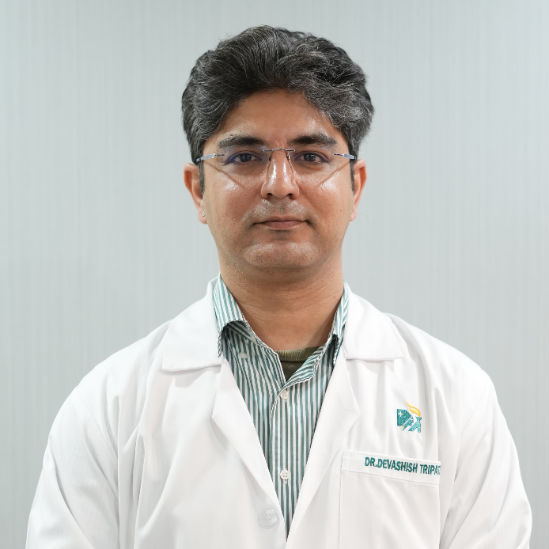
Dr Devashish Tripathi
Radiation Specialist Oncologist
20 Years • MBBS, PLAB, MRCP (UK)- General Medicine, FRCR (Oncology), Certificate of Completion of Training (CCT)- Clinical Oncology
Delhi
Apollo Hospitals Indraprastha, Delhi

